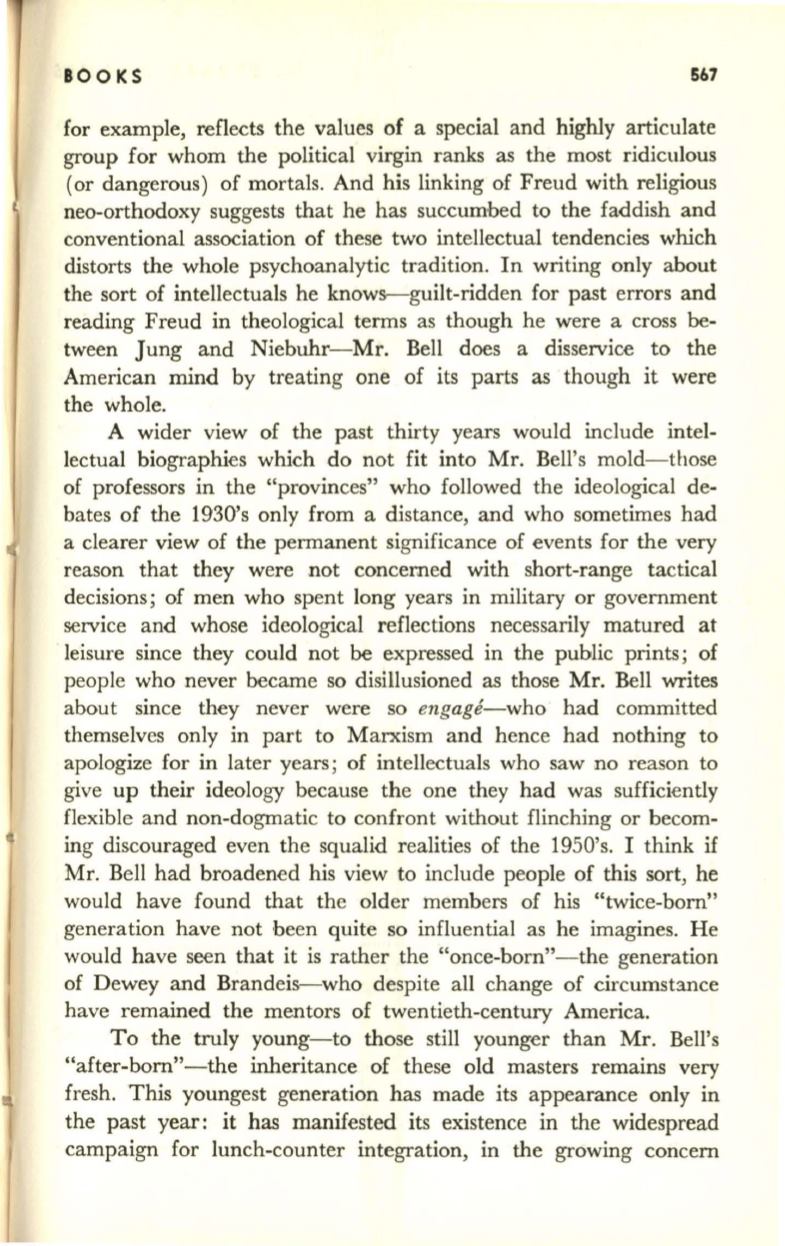
BOOKS
567
for example, reflects the values of a special and highly articulate
group for whom the political virgin ranks as the most ridiculous
(or dangerous) of mortals. And his linking of Freud with religious
neo-orthodoxy suggests that he has succumbed to the faddish and
conventional association of these two intellectual tendencies which
distorts the whole psychoanalytic tradition. In writing only about
the sort of intellectuals he knows-guilt-ridden for past errors and
reading Freud in theological terms as though he were a cross
be–
tween Jung and Niebuhr-Mr. Bell does a disservice to the
American mind by treating one of its parts as though it were
the whole.
A wider view of the past thirty years would include intel–
lectual biographies which do not fit into Mr. Bell's mold-those
of professors in the "provinces" who followed the ideological de–
bates of the 1930's only from a distance, and who sometimes had
a clearer view of the permanent significance of events for the very
reason that they were not concerned with short-range tactical
decisions; of men who spent long years in military or government
service and whose ideological reflections necessarily matured at
leisure since they could not be expressed in the public prints; of
people who never became so disillusioned as those Mr. Bell writes
about since they never were so
engage-who
had committed
themselves only in part to Marxism and hence had nothing to
apologize for in later years; of intellectuals who saw no reason to
give up their ideology because the one they had was sufficiently
flexible and non-dogmatic to confront without flinching or becom–
ing discouraged even the squalid realities of the 1950's. I think if
Mr. Bell had broadened his view to include people of this sort, he
would have found that the older members of his "twice-born"
generation have not been quite so influential as he imagines. He
would have seen that it is rather the "once-born"- the generation
of Dewey and Brandeis-who despite all change of circumstance
have remained the mentors of twentieth-century America.
To the truly young-to those still younger than Mr. Bell's
"after-born"-the inheritance of these old masters remains very
fresh. This youngest generation has made its appearance only in
the past year: it has manifested its existence in the widespread
campaign for lunch-counter integration, in the growing concern


